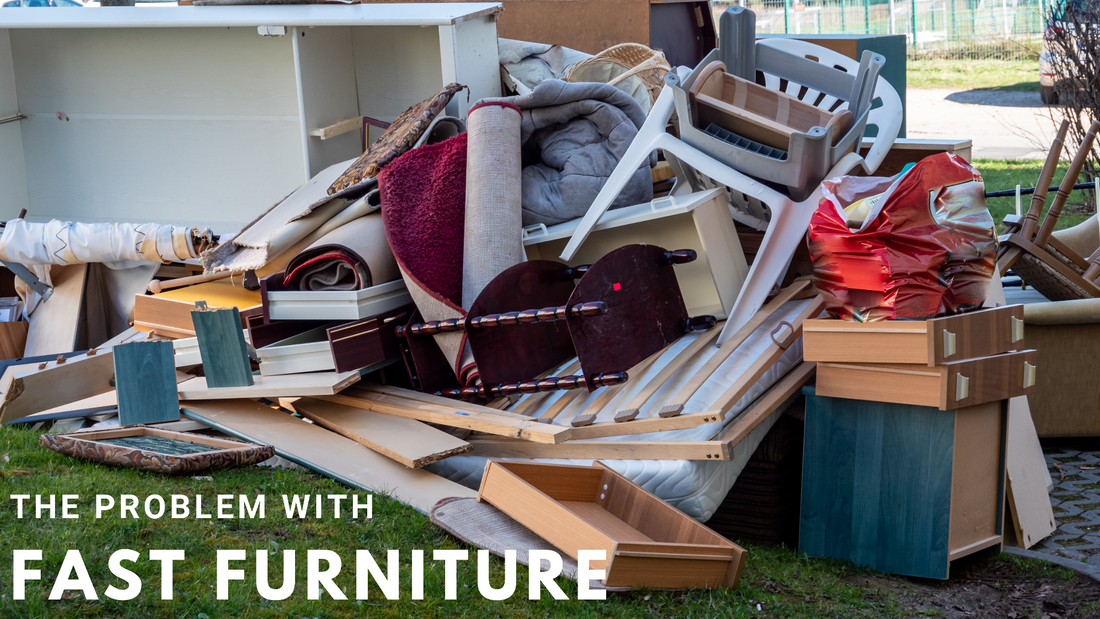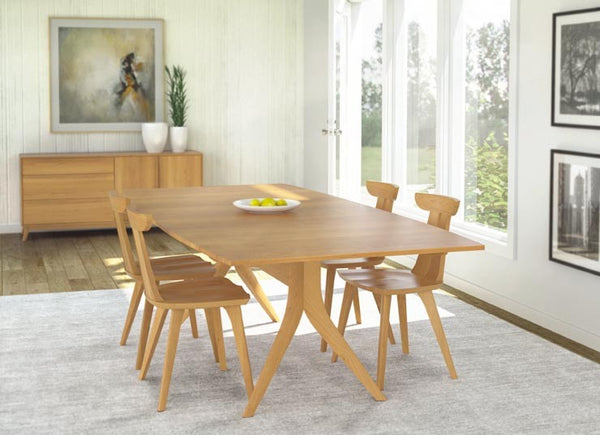You’ve heard the term Fast Fashion (if you haven’t, allow me to direct you to my past blog on the subject), but have you heard the same concept applied to the furniture industry? Unfortunately, Fast Furniture is also an issue. I recently came across a blog about Fast Furniture and, while I found it enlightening in regards to the wasteful nature of Fast Furniture, I found it extremely angry and judgmental. The author at one point demanded to know if readers really want CHEAP, mass produced garbage that every other person has. This is not an issue of individualism, about being 1 in a million because our mommy told us we were special. This is a climate issue. This is an issue about the damaging nature of the industry. This is an issue of the depletion of resources. This is an issue of waste. Similar to fast fashion, our capitalist/consumerist mindset has pushed us to over-purchase simply because the product was available and conveniently accessible. Businesses are then encouraged to make low-quality products that can be mass-produced quickly enough to satisfy demand. Before we discuss what we can do as consumers, let’s explore the consequences of Fast Furniture.
Why Fast Furniture is terrible
Let’s take a look at why Fast Furniture is so terrible. First, Fast Furniture is built to have a short lifespan, precisely to encourage continued purchasing. Low quality particle boards and simplistic construction quickly result in damaged pieces that need to be replaced thus ending up in landfill, thus driving up demand for “affordable” pieces, thus ending up in landfills, thus driving up… you get it. Unfortunately for us style-icons forever chasing the latest trend, this usually means we have to be careful and selective of what fads we choose to participate in; otherwise we further contribute to catastrophic landfills. Speaking of landfills, the EPA estimates 9 million tons of discarded furniture end up in American landfills annually. Nine. Million. Tons. Thankfully, the amount being recycled and combusted for energy recovery is rising, but it is still only 20% of total discarded furniture.
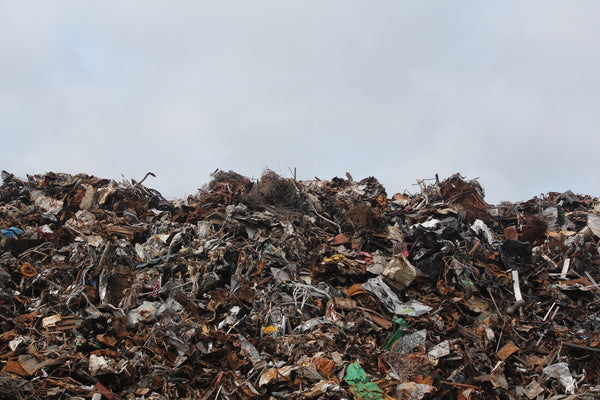
Sadly, landfill contribution is not the only wasteful and damaging aspect of Fast Furniture. Mass production has other devastating consequences. Fast Furniture is very often crafted using low-quality particle board that is filled with toxic chemicals such as formaldehyde and flame retardants, cheap lacquers, and glues that off-gas into your home and contaminate the air you breathe. Additionally, Fast Furniture requires global production, and the carbon footprint associated with shipping millions of tons on furniture around the world is staggering and significant. Not to mention the deforestation that, despite a significant increase in regulations, many tropical regions are still experiencing. Finally, and perhaps worst of all, is the exploitation of cheap labor “required” to offset the low sales price and high shipping costs.

Our style and aesthetic should not come at the expense of humanity and our planet. To have the time and resources to do all the appropriate research is a privilege. As Americans we not only have undeniable purchase power, we also have access to exquisitely crafted pieces made of renewable/sustainable resources AND a multitude of domestic manufacturers that adhere to strict industry regulations. Of course, it would be unfair to place blame on all consumers for industry practices. It is not demand driving Fast Furniture, but profit. Those of us with the resources to make smarter and more sustainable choices must use our power to demand change from the companies contributing to Fast Furniture.
What Can We Do About Fast Furniture?
I’m glad you asked. The most important thing we can do is to make conscious, well-informed choices, and invest in high-quality pieces that will endure beautifully within our home and stay out of landfills. Ask yourself: what does the long term lifespan of a piece look like? Is it something you will be handing down to your kids? Is it a piece that can be recycled or refurbished? Is it easily repaired or will minimal damage mean the death of the piece?
We can also choose timeless pieces that transcend style and trends. The furniture foundations of the home should be pieces that are adaptable with the times and easily incorporate changing superficial decor. That way large pieces remain while your style and decor evolves.
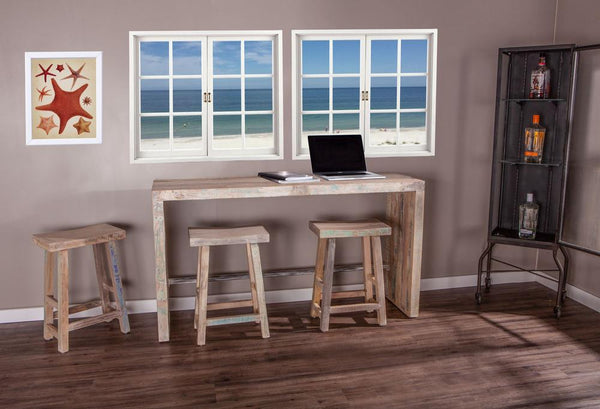
Another thing we can do is shop for pieces crafted in reclaimed materials. Many manufacturers and retailers (including us at Haiku Designs) are increasingly offering products crafted in reclaimed materials. Unique and full of character, reclaimed pieces bring a life and history to your home that new pieces simply can’t. Furniture crafted in reclaimed materials has a previous life embedded in the very texture, illustrating the beauty of the imperfect.
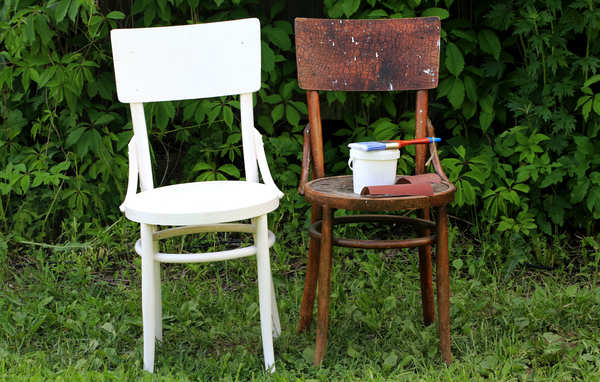
Yet another option is to thrift and upcycle yourself! What better way to spend your quarantine summer, than to take up a fabulous DIY project. Release all that creative energy on refurbishing a piece that would have otherwise ended up in a landfill. I recently refurbished a high chest I found at a thrift store and let me tell you, scraping off all those layers of paint and going crazy with the sandpaper can be cathartic and therapeutic. There’s a lot to be frustrated about these days. Why not direct some of that energy towards our home beautification projects.
Finally, buy less. It can be that simple. Go for a chic, minimalist aesthetic. Choose specific pieces that will be highlighted within your home and invest in those. Design your space around key items. And if you must indulge in Fast Furniture, be selective and seek out companies that are at least taking steps toward sustainability and fair trade.
Our efforts can sometimes feel pointless and miniscule, but that shouldn’t stop us from making better decisions for ourselves because, truthfully, that is all we have total control over. Quarantine may have forced us all to distance ourselves from one another but we are not alone. The shift towards a more sustainable world is well under way, whether the flat earthers and climate deniers want to believe it or not, and there are many MANY people who are on board and here for it! Be the change. Hold yourself accountable, and whenever possible say NO to Fast Furniture.
Jovanna, Haiku Designs Staff

